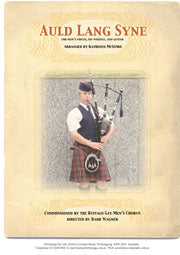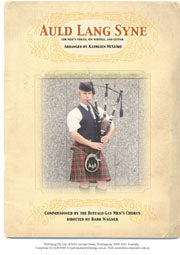Kathleen Mcguire
Auld Lang Syne
Auld Lang Syne
Couldn't load pickup availability
Share
 TTBB choir, tin whistle and guitar. c.5'00
TTBB choir, tin whistle and guitar. c.5'00
Auld Lang Syne is a traditional, Scottish poem that was adapted by Robert Burns in 1788. In English, a literal translation is “old long since,” or more colloquially: “long, long ago” or “days of long ago.” For hundreds of years, the poem has been set to a traditional folk song, of which there are many variations. The tune used here - the original, pentatonic melody Burns chose to set with the poem - is nowadays less familiar than the modern tune that is most commonly heard sung by revellers in many countries at the stroke of midnight on New Year’s Eve. Burns, when he presented the song to the British Museum, remarked: "The following song, an old song, of the olden times, and which has never been in print, nor even in manuscript until I took it down from an old man's singing, is enough to recommend any air." The original folk song to which it was set was known as: "I fee'd a lad at Michaelmas.”
Composed 2009 .
Audio sample: Tenors and basses of the Tudor Chorister, conducted by Dr Kathleen McGuire; Claire Patty, harp; Barbara Fairhurst, recorder
Discount for multiple digital choral copies under license only contact keats@wirripang.com.au
Download samples
ISMN 9790720171913
$8.00 for instant PDF download see: 


